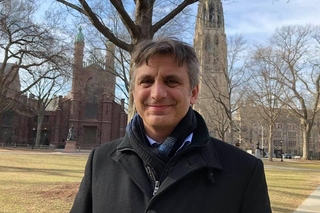Open To: General Public
Admission: Free
Location: ISM Great Hall, 409 Prospect Street, New Haven
Description: Commenting on Commentaries of the Syriac Liturgy
Join us for ISM’s biannual liturgy symposium. All are welcome!
The Syriac liturgical commentaries are important texts to inform us about the worship tradition and the development of the liturgical rites in the Syriac Church. Some of them have contributed in the normativity of the Syriac liturgical practices during the wide circulation of their texts. By attributing a few liturgical commentaries and canons to certain key Syriac Church Fathers, they played a significant role in the history of the liturgical development. They have influenced not only the later interpretations of the Syriac liturgy, but also facilitated the standardization process of the rites. One of the remarkable characteristics in the Syriac liturgical commentaries is the obvious use of the technical mystagogical concept of ‘roze’. Nevertheless, this mystagogical method of how to interpret several liturgical elements and practices do not exclude the historical details of time and place. Indeed, these commentaries have echoed some particularities of their historical context as well, which might explain the reasons behind the popularity of only some of them. This lecture will examine the genre of the Syriac liturgical commentaries, while exploring also some unedited texts found in manuscripts. It will investigate the reasons for the popularity of certain commentaries over others.
Ephrem Aboud Ishac is a researcher and a lecturer on Syriac Liturgical Studies, focusing on the liturgical texts of Syriac Anaphoras. After obtaining a Ph.D. in Liturgy from the Holy Spirit University of Kaslik, Ephrem was engaged in postdoctoral projects in Graz and Bologna. Having lectured in Salzburg and Vienna, in 2020 he was short term fellow at the Yale Institute of Sacred Music (ISM), and in this academic year 2022-23, Ephrem has been back to ISM as a research scholar fellow working on a book project grounded on his Arabic doctoral dissertation entitled Mor Jacob of Edessa’s Anaphora: A Critical Liturgical Study and a Comparative Linguistic Analysis, which he is reworking and preparing for a publication in English. Based on new texts that Ephrem could find in Syriac manuscripts and fragments, he will include further liturgical and canonical texts in the comparative method of his reworked research.
